How to Pick the Best Travel Insurance for Singapore
‘Why do I need travel insurance for Singapore?’ I hear you ask. ‘Isn’t Singapore one of the safest countries in the world to travel in?’ … Read more
When I first moved to Singapore as an expat, I had no idea what to expect. My only experience of the ‘Lion City’ had been many years earlier as a backpacker when I considered it simply a brief and necessary stopping-off point between the excitement of Indonesia and Malaysia. Singapore carried a perception of being a sterile, safe, and somewhat dull city at 19 years old.
Twelve years into my expat adventure, this still holds true to some degree. It is one of the cleanest cities I have ever lived in, with no graffiti or street rubbish here; there is very little crime (well, reported crime, that is), and life feels very orderly and efficient.
But as a wiser, more mature adult, these are now features that I’ve come to appreciate and are just some of the reasons that Singapore frequently tops the list of the best expat places to live.
But as an ‘old timer’, I’m also happy to report that there is so much more to Singapore than meets the eye. It is a country of great contrasts; from ultra-modern buildings to beaches and primary rain forest; from tech-savvy urbanites to aging taxi ‘uncles’ who can barely read their satnav; from cashless payment systems to lighting daily incense sticks to ward off bad spirits.
Singapore is rich in culture, history, diversity of people, and most of all….food! The national obsession for delicious, cheap food of all varieties and flavours pervades daily life with food markets found on every street corner and ‘what have you eaten today?’ the easy opener to any conversation.
If you are thinking of moving to Singapore then I can’t recommend it more highly, it is a wonderful and easy place in which to let many years slip by.
But every expat move is fraught with worry and questions: How do I find somewhere to live? Should I bring my dog? How fast can I open a bank account? What should I pack? All good questions and ones I’ll now answer in this article.
Read on for the key things you need to know about making your move to Singapore, from the pros and cons to the nitty gritty details of the move itself, to finding your feet on the ‘Little Red Dot’.
All prices are quoted in Singapore Dollars (SGD).
Contents
In this section, I’ll walk you through a checklist of everything you should know before moving to Singapore.
If you’re moving to Singapore, you’re likely coming as part of a job relocation or as the rather unflatteringly called ‘trailing partner’ (in my experience, you are anything but trailing, you are actually trailblazing as your partner is far too busy working to be thinking about the move).
If that’s the case, you have probably already sat down and thought about the pros and cons of such a move, in relation to your own circumstances, so perhaps what you really need to know now is what I call the ‘wins’ and ‘losses’ of life in Singapore.
Wins…say hello to:
Losses…say goodbye to:
Singapore’s climate might be hot, but its daily cash burn rate is even hotter. If you are here without a steady income, then…actually forget that, you won’t be here for very long without a steady income. Let’s look at what makes Singapore so expensive.
Whether you are going into a condo or a landed property, rent is not cheap, it can range between $2,500 and $14,000 a month, depending on the size and location of your property. If you want to keep costs down, look further away from the city centre and consider sharing with others or just taking a single room.
Think you like living with aircon, think again! Electricity and water are insanely expensive, easily adding up to $200 to $600 a month or more if you keep your aircon on all the time. Likewise, maintaining that aircon will set you back $60 to $100 every time you need the unit serviced and cleaned.
On the plus side, cooking gas is cheap, sold by the bottle, and easy to replace, and your bins will be emptied daily.
The real expense here is ‘keeping up with the Jones’’ and having tech-envy. Luckily there are deals aplenty on handphones (the local word for a mobile phone), and data bundles start from around $30 a month for a monthly mobile phone plan.
While public transport (buses and MRT trains) and taxis in Singapore are all super cheap and efficient, owning a car is anything but. It’s not just the cost of buying a car, which will likely cost you up to double the price of the same model back home, but you also have to pay for the COE (Certificate of Entitlement), the document that allows you to register and own a car.
The price of this fluctuates according to demand, with a bidding system in place for the limited number of COEs sold each month, but as of 2024, prices have skyrocketed to over $106,000,202 for a car up to 1,600cc. And it’s getting more expensive each month.
If you really need your own set of wheels and want to keep your costs down, consider a moped. These are dirt cheap in comparison, my second-hand Vespa cost me just $4,000 and only a few hundred each year in insurance and petrol.
You can eat like royalty in Singapore for less than $12 a head in the local hawker (food) markets and be treated to a feast of flavours and cultural delights. Thai, Indian, Singapore Chili crab—there is no end to the delicious treats that await. But go to a proper restaurant or the supermarket and it’s a different story. Restaurants come and go like thunderstorms.
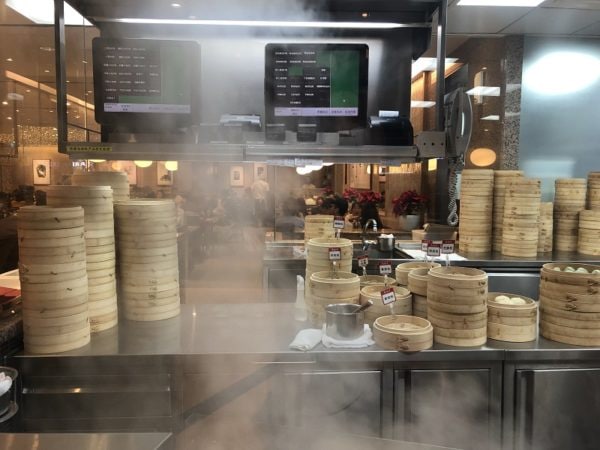
This is because of the rising rents and fickle consumer tastes, it’s a small island, so any restaurant lives and dies by its reputation pretty quickly.
This means that they need to make hay while the sun shines, and that means high prices; a meal for two at more upscale restaurants will quickly reach over$100, and that is without booze. By the same token, a trip to the supermarket will easily set you back $150 for just a simple daily basket of necessities. My top tip, shop local, and eat local.
There are two main visa-issuing agencies in Singapore, the ICA (Immigration & Checkpoints Authority) and MOM (Ministry of Manpower). Singapore just loves its acronyms, get used to it.
The ICA issues visas for those who are planning to visit or live in Singapore on a short or long-term basis, while the MOM issues visas for those relocating for work.
An EP (Employment Pass) is the main type of visa for those moving to Singapore with a job. This will be issued through the company you are relocating with. You will need to demonstrate minimum education requirements and specialist skills, which mean the job can’t be fulfilled by a local. Your pass will then be issued for two or three years at a time and renewable.
pouses and children of those on an EP will be given a DP (Dependents Pass). This allows multiple entries and exits but you cannot work on this pass in any way.
Permanent Residency (PR) can be obtained on a five-year basis with renewals possible, provided you meet certain eligibility criteria such as economic status and education qualifications. PR status allows you unlimited entry and exit from Singapore and means you are essentially treated as a Singapore citizen with the one big difference, you can’t vote.
Note, if you are a male under 18 years old and holding PR status, you are expected to complete National Service once you turn 18 and finish school. For many families, this is a deal breaker, and so in that instance, the parents might take PR status and leave the children on a Student Pass or Long Term Visit Pass (LTVP).
Student Passes are issued for anyone attending an approved education centre (the majority of international schools are approved, and some local institutions too). This enables you to come and go freely and even allows you to work part-time for up to 16 hours a week during term time or unlimited in holidays. Renewable every three years.
A Long Term Visit Pass (LTVP) is issued on a two- or three-year basis, with renewals possible, for parents or children of PRs. It’s intended to allow you to come and go freely to be with your PR family members. However, you cannot take up any form of employment with this visa.
Singapore is not a big island, so you aren’t going to go too far wrong wherever you live, but let’s look at the main areas.
The Central Business District (CBD) is very convenient if you are working in the financial district, but it’s all high rise, apartment living and very expensive. Head out to Robertson Quay or River Valley for cheaper options, plentiful bars, and riverside eateries.
Central Singapore, such as Orchard Road and Tanglin, have long been popular with expats thanks to their unrivalled access to the retail heart of the island, but condos here are still expensive. Head slightly further north to Newton, Ang Mo Kio, or Serangoon for cheaper rent and easy access to international schools like the International French School and Stamford American International School.
For those looking for a more laid-back Singapore, the East Coast provides a beachy charm. Katong and Joo Chiat especially are favoured areas with their idyllic shophouse vibe. This area is also handy for schools such as United World College East Campus and up to Pasir Ris for Overseas Family School.
To the west are Bukit Timah, Holland Village, Bukit Batok, and beyond. All popular expat enclaves, handy for many schools, easy access in and out of the city on the AYE and PIE expressways and a plethora of houses and apartment choices to suit every budget.
As you head north, you’ll come to Woodlands and Yishun, popular with the American community in particular with its proximity to the US naval base and Singapore American School.
If you head down south, you’ll need some spare change floating in your wallet to enjoy island living on Sentosa, Singapore’s very own holiday island destination and home to some very luxurious condos with sea views and a breeze.
The decision about where to live is as much about what to live in. Do you go for a condo with the convenience of on-site gyms and swimming pools, or do you head to a landed property (house) for privacy and space? Or perhaps it’s a heritage home you are after in one of Singapore’s ‘Black and Whites’ or shophouses.
Ah, the logistics part. Actually, this being Singapore, this is all very efficient and easy, provided you have everything in order beforehand, and any forms that need completing can be neatly ticked. Don’t try and do anything different. Singaporeans are notorious for not ‘thinking outside of the box,’ so if the box isn’t on the form, you won’t be coming in!
Changi Airport, officially the world’s best airport, never disappoints and there are plentiful flights and airlines cruising in and out of Singapore at any one time.
First and foremost, of course, is Singapore Airlines, a firm favorite with many long-term expats for its level of comfort and service. Become a frequent flyer and the perks add up. Many an expat has longed for Solitaire status which is the only way to get upgrades.
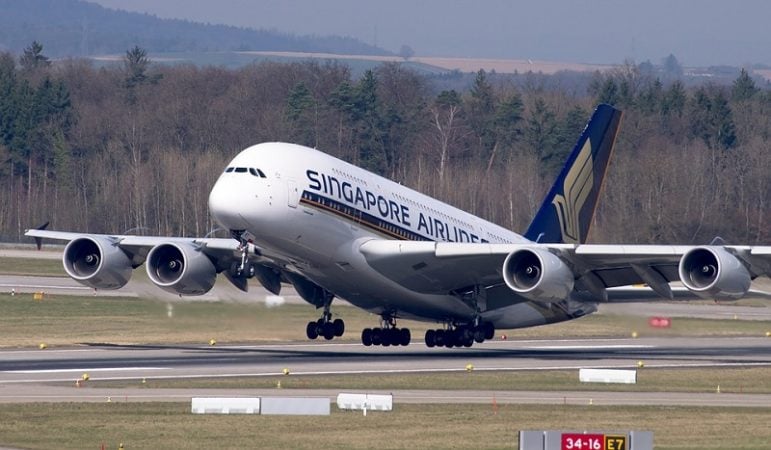
For the rest of us, you’ll likely be looking at a national carrier from wherever you are coming, like British Airways, Lufthansa, Air France, Cathay Pacific, and so forth.
But there are also budget options, and you’ll become very familiar with these if you start to take advantage of the many holiday and travel options from the hub of Singapore, such as Scoot and AirAsia.
The best way to book any of these will be directly through the carrier’s own website or use a flight aggregator site to compare and contrast, such as Skyscanner.
The rule of thumb is that you need less than you bring. Always. This is a country where it’s not difficult to find whatever you want, though it may come at a price. There are even outlets such as the good old favourite British M&S and Waitrose, so finding national treasures like Marmite is easy.
If I really think hard about what I make sure I pack in my own suitcase on a return trip to Singapore, there are very few items that I now bring that I can’t get here…really, I think it just comes down to:
However, there are definitely a few items which I would suggest you most definitely don’t want to bring;
This is Singapore, and correct paperwork is a national obsession. It is imperative that you have certain documents in hand if you want to get your visa, open a bank account or do anything vaguely official, so make sure to bring:
Do you or don’t you? I was advised not to and then immediately regretted it and brought our dog and cat smartly out as quickly as I could. In my experience, your new home won’t feel like home without your four-legged friends with you.
There are strict rules about bringing animals in through immigration, and as with all things Singapore, you’ll want to make sure you’ve done your research and paperwork thoroughly before you go.

Take a look at the AVS (Animal & Veterinary Service) site for a checklist of what is needed, but as a rule of thumb, provided your animals are microchipped, their vaccinations are up to date, including a rabies vaccine, and they have a pet passport, bringing them in will be expensive but not difficult. For many people, using a third-party agent to oversee the move will be a huge help. Jasons & Mitchvilles come highly recommended.
Don’t forget, once you have your pet in Singapore, you’ll need to register it with the AVS and make sure you bring a leash. While there are some places in Singapore where you can let the dog off the lead, Tanjong Beach on Sentosa is a firm expat favourite, as a general rule, if the dog is outside the house, it needs to be on a lead.
For those of you looking to bring the kitchen sink and more, you’ll want a moving company to help with the logistics of your air/sea freight or container. Chances are that whoever you are using in your home country for the packing up will have a local partner here in Singapore who they will automatically connect you with for the unloading on this end.
Read our article here for everything you need to know about Shipping to Singapore.
So now you are here, or almost here, and you are beginning to think about daily life. Wah! Where do you start, lah? No, I haven’t gone mad, I’m merely speaking Singlish, Singapore English. This is the first thing to wrap your head around.
While there are four official languages in Singapore; English, Mandarin, Tamil, and Malay, the common denominator is Singlish. A colloquial form of English that has developed over the years. It will take you many years to master this, but the good news is that there are a few common phrases that will help you get by.
To answer anything in the affirmative, simply say ‘can’. Is it ok to come inside? Can. Is it ok to leave my shoes on? Can. To answer in the negative, simply say ‘Cannot’. If you really want to sound local, add a ‘lah’ to that…cannot lah.
There are other phrases that will get you by; ‘shiok’, ‘ayeeoh’, but ‘can’ & ‘cannot lah’ will suffice for your first few weeks in town.
Singapore may feel like Asia-lite, they may speak English, but I can guarantee that you will still feel some form of culture shock on arrival. It’s ok, we all do and that is why expats form friendships quickly because we’ve all been in the same boat. Here are a few tips that will help you get by:
We’ve already covered key areas and types of housing, but how do you go about starting to find a home on this little island of ours?
The simple answer is to use an agent. While there are plenty of online marketplaces, such as PropertyGuru or iProperty, if you spot something you like, it’s not as simple as putting a phone call in to make a viewing. The way it works here is the landlord has an agent, and the prospective tenant has an agent. The two agents convene to arrange viewings and make deals happen.
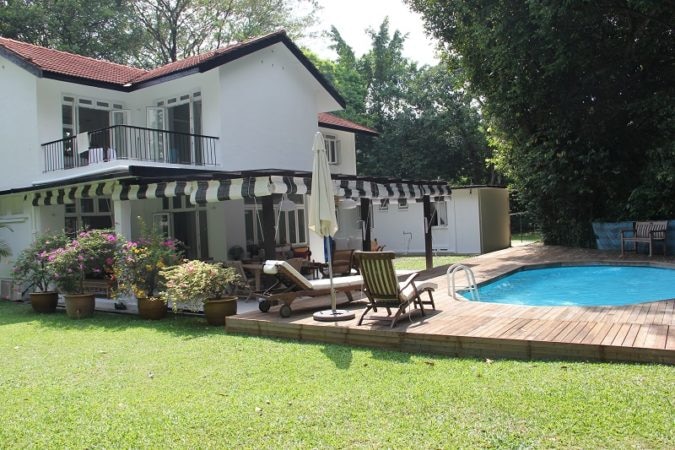
The best way to choose an agent is through word-of-mouth, such as a recommendation from a colleague or friend. But if that doesn’t lead to a response, there are some businesses, such as Citiprop that have a number of freelance agents working for them. Once you have found an agent, don’t try and be clever and hook up with a second agent.
It’s not the done thing and will result in the two agents essentially competing to show you the same properties and then getting very cross when they discover what you’ve done.
A word of caution, just because you have an agent, it doesn’t mean you can totally take your foot off the gas. eep scouring those property websites because agents often don’t show you everything as they are trying to encourage you to take a property that is on the market via their agent friend. Or they simply don’t understand that expats actually like outside space and don’t want to live in a fully glass box.
To get the full low down on housing in Singapore, I suggest you read my other articles on the complete guide to renting an apartment in Singapore and how to find a real estate agent in Singapore.
Once you’ve found a place to live, you’ll need to set yourself up with utilities: electricity, water, and connectivity. Many people simply opt for the easiest, which is to use well-established providers such as SP Services, which allow you to manage electricity and water on one account.
But, increasingly, there are some new players in the market, especially with regard to electricity and finding greener choices. For example, Keppel Electric offers an ecoGreen plan that can help you lower your carbon footprint.
If you haven’t found a house by the time you are ready to arrive, don’t panic, there are a plethora of full-furnished and equipped serviced apartments all over town which you can rent from anything from one week to one year. Far East Organisation has a good selection.
Given Singapore’s crazy high burn rate, most people are relocating here with a job and EP already in hand, but should you be coming on a bit of a ‘look-see’ or as a ‘dependent’ then maybe you’ll be on the hunt for a job.
First things first, if you are looking for a part-time or casual job, think again. Singapore makes working part-time as a foreigner very difficult for the very simple reason that to obtain an EP you need a minimum salary of$5,000 per month, and you’ll need to demonstrate that you are doing a role that a local Singaporean can’t do. Not many part-time roles fit that bill except perhaps if you are a specialist teacher or therapist in a school or clinic.
Most of the part-time, casual jobs, such as working in a restaurant or shop, will go to either locals or students. Many enterprising students can be found at coffee shops and burger bars across the island, filling up their coffers for a night out in Clarke Quay on the weekend.
For full time employment, you will need to demonstrate that you are offering a skill or service which a local resident can’t provide. Businesses have strict quotas on how many foreigners they can employ depending on their size and the marketplace they operate within. As a result, it isn’t always easy to get your foot in the door and hence why most people tend to arrive in Singapore with a job already under their belt.
But if you really are here and job hunting, I suggest you get networking like crazy. Pump up your LinkedIn profile, try to meet as many people as you can, and make yourself visible and available. All employers are bound to advertise any role they are offering to the open market, so you can also keep an eye on sites such as JobStreet or MyCareersFuture.
Read more: An Expat’s Guide to Finding Work in Singapore
Paperwork is your number one friend here. Opening up a bank account as an EP holder is a relatively straightforward, quick, and painless process, provided you have the necessary paperwork. If you are on a DP then forget it…you are a dependent, not independent.
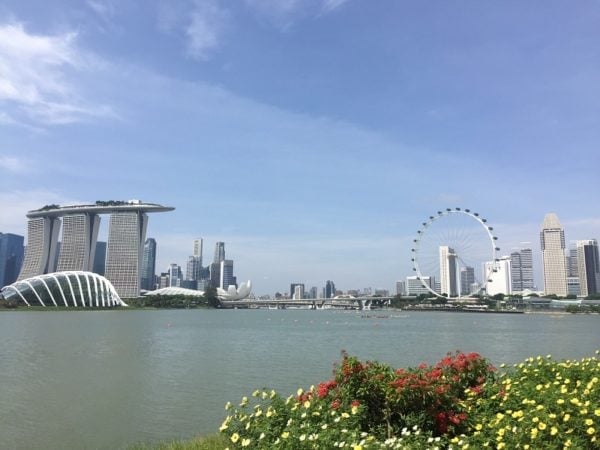
Your spouse or parent will need to open a bank account in their name, and then they can add you as a signatory to it.
It will make you baulk in anger, but honestly, move on, it’s just the way it is. Oh, and get used to it, you’ll have the same issue when you try to open up a mobile phone account.
Read more:
Singapore is known for its low-income tax rate, which at its maximum is only 15% for non-residents. Great news, but whatever you do, just make sure that you are paying it. If you try to leave the country at any point with an unpaid tax bill, you will be pulled over at customs.
For all things tax and accounting, you’ll want to get familiar with ACRA (Accounting & Corporate Regulatory Authority) and IRAS (Inland Revenue Authority of Singapore), but first, you’ll need to land in Singapore and have your paperwork in order so that you can create a SingPass account, this is a digital ID for all secure government agency transactions.
If, like me, your eyes are glazing over at this point, perhaps you’ll want a tax advisor who can help you. There are many out there who specialise in expat finances, but you could do worse than starting with one of these recommendations: Expat Financial or The Fry Group.
Read more: Singapore Income Tax for Foreigners: Do You Need to Pay?
Singapore is awash with some fantastic educational institutions from primary levels through to tertiary. This is an island where education is taken seriously, and Singapore maths, in particular, is well regarded worldwide. Let’s look at some of the education options:
These are much cheaper than international schools, as school fees range from $280 per month for primary permanent resident students to $935 per month for primary international students (Non-ASEAN).
Local schools also have excellent academic reputations, so your children won’t be losing out on anything.
If the purse strings are tight, then a local education can be brilliant but be prepared to dip into the wallet again for your child to join multiple sports clubs outside of school, as local schools are not strong on sports and activities in the way that international schools are.
And again, watch out for tutoring costs as your children will be entering a world whereafter-school programs become the norm. It’s not unknown for Singaporean families to spend double on a tutor than they do on school fees.
Also, be aware that local schools have very strict quotas on how many ‘foreigners’ they can take, and places are allocated on a ballot system, with places for foreigners only opening up after all the local places have been offered.
In short, local schools are cheap, but pressured environments and places for foreigners are hard to come by.
There are more than 50 different international schools on this island. They range from good to truly world-class, but then so do their fees. Expect to pay around $20,00 for a small, young international school such as OWIS through to $42,000 for a top-end British brand name school like Dulwich College (Singapore).
But international education offers a huge choice in curricula from British to American to IB or German/French and more, and all the schools focus on providing a very rounded education with the goal of preparing your child fora top university anywhere in the world.
I’m a big fan, provided your wallet can handle it. I tell my own children that my investment in them better pay off with them looking after me in my dotage. But register early, waitlists can be painful.
Singapore has some excellent universities which are affiliated with world-class institutions such as Duke-NUS and Yale-NUS. Many an expat offspring have opted for one of these top choices as a way of experiencing the Singapore adventure with their family.
This is Asia, the home of the tiger mum, and so it is no surprise that private tuition is big business. Every shopping centre in town has private tuition centres in them, and there are a couple of renowned centres, such as Coda Encore, that cater especially to an expat population.
While some families use these as a great way of boosting a child in specific subjects or in the run-up to exams, for other families, this can be a brilliant stopgap while waiting for a waitlist to move and a school place to become available.
Singapore’s healthcare is split into private and public. Both are excellent but come with their differences in terms of speed of access and comfort of care.
Either route, as an expat, you’ll need to pay for services because you aren’t able to access Singapore’s national health insurance plan or any of the government subsidies available, so you will need to look at health insurance.
Take a look at our articles, The Complete Guide to Singapore Expat Health Insurance and The Overview of Singapore’s Healthcare System for Expats to find out everything you need to know about health insurance and more.
Singapore living is synonymous with outdoor living. With weather this hot and sunny, who wouldn’t want to be outside? But, you will need to get used to exercising early or late in the day. ‘Maddogs and Englishmen in the midday heat’, the song by Noel Coward, could surely have been written with Singapore in mind.
If you are a hiker, runner, cyclist, or mountain biker, you’ll be in good company as there are burgeoning numbers of these out and about on a regular basis, but there are also many other options for sports, such as tennis, swimming, or football, for which you’ll want to join a club.
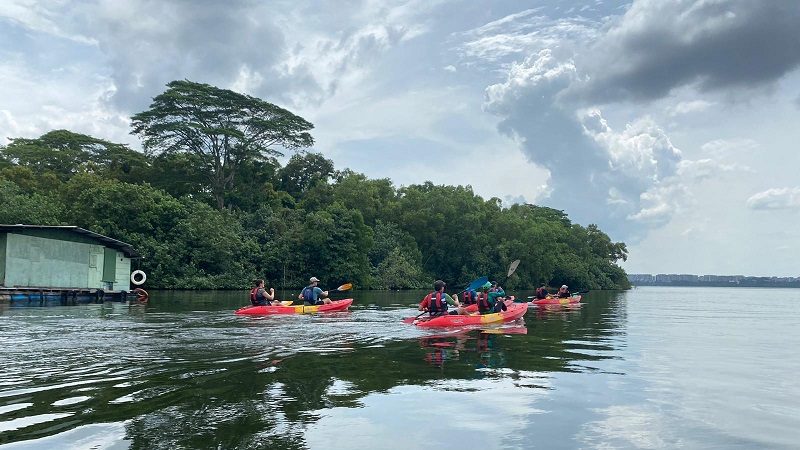
Many of the different national communities have their own member clubs, such as the British Club, the Swiss Club, the Hollandse Club and so forth. These all come with fabulous facilities in central locations and are an excellent way of meeting people as well as making use of their sports facilities.
I suggest a visit to each club to enquire about a free day membership pass so that you can ‘trial’ the club; even if you end up not joining, it’s a great day out!
If it’s sports clubs specifically you are looking for, then there are a plethora of golf clubs, tennis academies, football clubs, and rugby clubs galore. If you have children in tow, then they are going to love these; you might not love the loss of your Saturday and Sunday mornings, but the payback is seeing your child happy and exhausted after a fun morning in a team sport.
The best way to find out what is on offer is to look at one of the expat online magazines; Expat Living and Sassy Mama are our two favourites.
I’ve already talked about the cost of owning a car in Singapore, but another option to consider is car leasing. This can be an easy and convenient way to take on a car without the huge upfront purchasing overheads. Check out BizLink to do so, but you need to have a driver’s license in Singapore first.
You’re almost set to go, but the missing link here is the mobile phone, aka handphone, as without one of these, you are going to feel lost!
The main providers of mobile phone coverage here in Singapore are M1, Singtel and Starhub. Each has shops and outlets island-wide and offers a range of great deals on handsets, SIM cards, and multiple account options.
Many expats simply start with a whole new phone, number, and contract on arrival, all of which can be done in one quick afternoon, but if you already have a handset and are looking for a SIM-only deal, then remember to contact your original phone provider to make sure that it will accept a foreign sim card.
Making the move to Singapore can be done in as little as four weeks or as long as six months to a year, depending on how long it takes you to find a job and get the paperwork in order.
In my experience, the time you have available is the time it will take you. But as with anything in life, the longer you have to plan, the better and the more likely you will get the options you want, especially with regard to housing and schools.
A suggested timeline would go something like this:
In short, give yourself plenty of time to get organised and write your own timeline as needs be for you.
With all these tips and information, you are now well set to start planning your move to Singapore and I’m excited for you. Singapore is a wonderful place to live, and your only worry is going to be how on earth you leave once you have become accustomed to living the good life!
Here are some of the most important guides you must read when moving to Singapore:
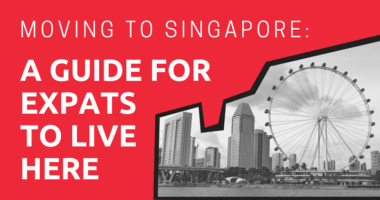 Moving to Singapore: A Guide for Expats to Live Here 2024-04-07 When I first moved to Singapore as an expat, I had no idea what to expect. My only experience of… ... Read more
Moving to Singapore: A Guide for Expats to Live Here 2024-04-07 When I first moved to Singapore as an expat, I had no idea what to expect. My only experience of… ... Read more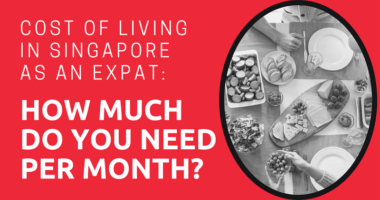 Cost of Living in Singapore as an Expat: How Much Do You Need Per Month? (2024) 2024-04-19 According to the Economist Intelligence, Singapore was tied with Zurich, Switzerland, as the world’s most expensive city to live in.… ... Read more
Cost of Living in Singapore as an Expat: How Much Do You Need Per Month? (2024) 2024-04-19 According to the Economist Intelligence, Singapore was tied with Zurich, Switzerland, as the world’s most expensive city to live in.… ... Read more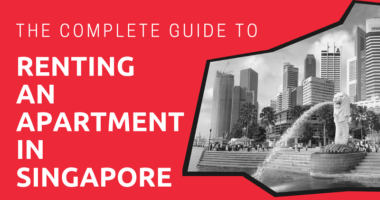 The Complete Guide to Renting an Apartment in Singapore 2024-04-19 “The LL accept LOI, now prepare TA, ok ah?“ Make any sense to you? No. Looking to rent a property… ... Read more
The Complete Guide to Renting an Apartment in Singapore 2024-04-19 “The LL accept LOI, now prepare TA, ok ah?“ Make any sense to you? No. Looking to rent a property… ... Read more The Complete Guide to Singapore Expat Health Insurance 2024-02-29 Healthcare in Singapore is rated very highly in terms of quality and expertise, especially in comparison to many of its… ... Read more
The Complete Guide to Singapore Expat Health Insurance 2024-02-29 Healthcare in Singapore is rated very highly in terms of quality and expertise, especially in comparison to many of its… ... Read more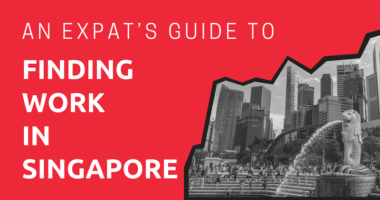 An Expat’s Guide to Finding Work in Singapore 2024-04-04 As Singapore is one of the safest countries in the world, has low tax rates, a great climate, and excellent… ... Read more
An Expat’s Guide to Finding Work in Singapore 2024-04-04 As Singapore is one of the safest countries in the world, has low tax rates, a great climate, and excellent… ... Read more Shipping to Singapore: Services, Costs, and Customs 2024-03-13 Are you looking to pack your bags and move to Singapore? Are you looking to ship a package to Singapore?… ... Read more
Shipping to Singapore: Services, Costs, and Customs 2024-03-13 Are you looking to pack your bags and move to Singapore? Are you looking to ship a package to Singapore?… ... Read more‘Why do I need travel insurance for Singapore?’ I hear you ask. ‘Isn’t Singapore one of the safest countries in the world to travel in?’ … Read more
So, you want to send some items from Singapore? And you want to do it cheaply but reliably, right? Then this guide is for you. … Read more
A detailed breakdown of costs, curricula, and much more.
Just found out your pregnant in Singapore? This guide will show you how to navigate the next nine months.
“The LL accept LOI, now prepare TA, ok ah?“ Make any sense to you? No. Looking to rent a property in Singapore? Yes. Then this … Read more
According to the Economist Intelligence, Singapore was tied with Zurich, Switzerland, as the world’s most expensive city to live in. In fact, Singapore has been … Read more
Ask most people what they know about Singapore, and one of the first things people will mention is how expensive Singapore is. From the cost … Read more
One thing you may not think about right away when moving to another country is healthcare. Until you get sick, you might not see a … Read more
Are you planning to send money to Singapore? Do you know that every time you send money to Singapore (or elsewhere) via bank transfers, you … Read more
If you’re a single expat living in Singapore, you may want to join the dating scene. As Singapore has such a diverse population, dating here … Read more
Finding an apartment can be one of the most challenging things about moving to another country. To minimize your stress, you should consider looking for … Read more
If you’re new in Singapore and want to meet new people, one great way to do so is to go on dates. As Singapore is … Read more